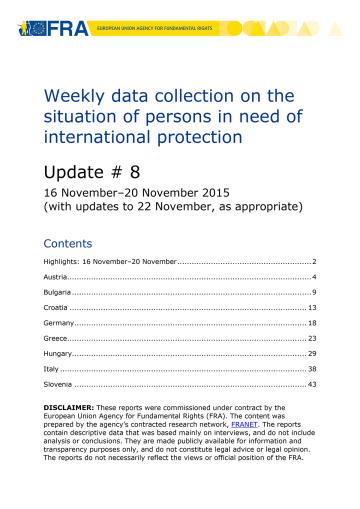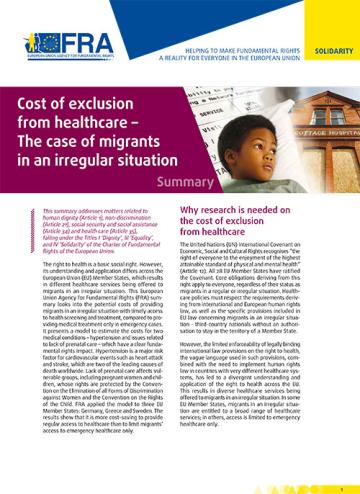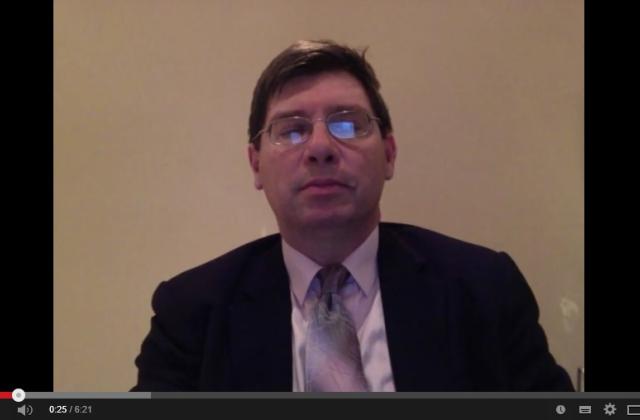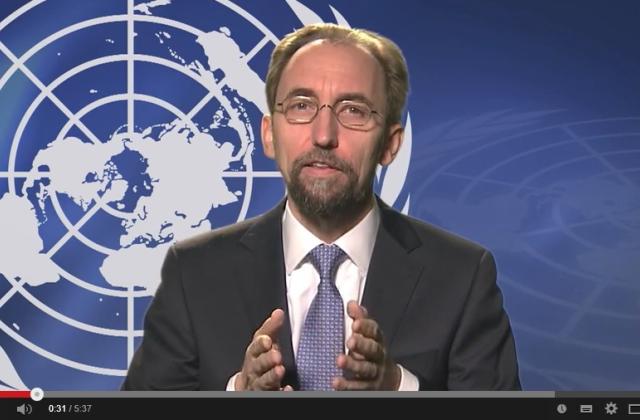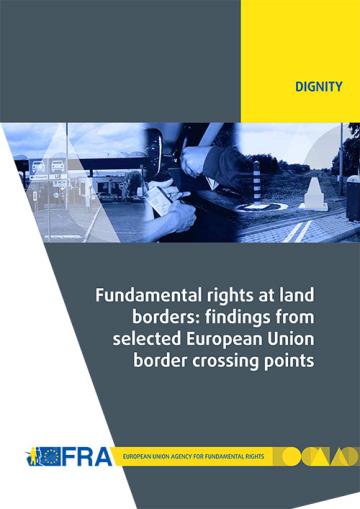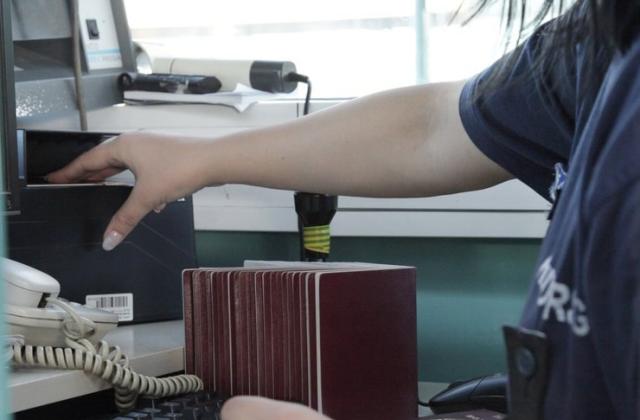Help us make the FRA website better for you!
Take part in a one-to-one session and help us improve the FRA website. It will take about 30 minutes of your time.
Asyl, migration og grænser
<p>The migrant crisis has triggered challenges across Europe. FRA encourages rights-compliant responses.</p>
<p>We provide practical expertise on this complex issue. This includes regular updates, focus papers and toolkits. We outline policy alternatives and best practices.</p>
Highlights
- PageThis page describes the activities of the EU Agency for Fundamental Rights (FRA) on migration and asylum. It also explains how these activities can help the European Union (EU) and its Member States to implement the Pact on Migration and Asylum in a fundamental rights-compliant manner.
- Report / Paper / Summary22March2022In view of the human rights situation since the beginning of the war in Ukraine on 24 February 2022 and the large number of persons seeking protection in the European Union (EU), the EU Agency for Fundamental Rights (FRA) dispatched, as a first step, a team composed of Agency staff who speak the national languages and with expertise on migration, child protection, equality and non-discrimination and Roma inclusion to observe and collect evidence on the evolving situation. The team reported daily to the EU mechanism for preparedness and crises management on migration (Migration Preparedness and Crisis Blueprint).
- Report / Paper / Summary14December2020Artificial intelligence (AI) already plays a role in deciding what unemployment benefits someone gets, where a burglary is likely to take place, whether someone is at risk of cancer, or who sees that catchy advertisement for low mortgage rates. Its use keeps growing, presenting seemingly endless possibilities. But we need to make sure to fully uphold fundamental rights standards when using AI. This report presents concrete examples of how companies and public administrations in the EU are using, or trying to use, AI. It focuses on four core areas – social benefits, predictive policing, health services and targeted advertising.
- Handbook / Guide / Manual17December2020The European Convention on Human Rights and European Union law provide an increasingly important framework for the protection of the rights of foreigners. European Union legislation relating to asylum, borders and immigration is developing fast. There is an impressive body of case law by the European Court of Human Rights relating in particular to Articles 3, 5, 8 and 13 of the ECHR. The Court of Justice of the European Union is increasingly asked to pronounce on the interpretation of European Union law provisions in this field. The third edition of this handbook, updated up to July 2020, presents this European Union legislation and the body of case law by the two European courts in an accessible way.







